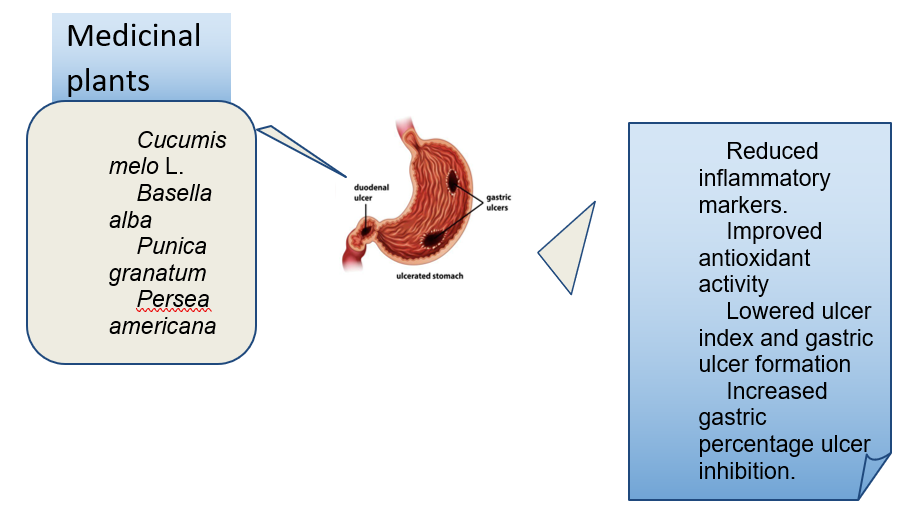Review of some ethnomedicinal remedies for Peptic Ulcer
DOI:
https://doi.org/10.31989/ffs.v3i11.1246Abstract
Peptic ulcer is described as the deep destruction of the stomach and/or duodenal mucosa, extending past the muscularis mucosa, which occurs when the mucosal defences including prostaglandins, mucus, and sufficient blood flow are altered. Helicobacter pylori (H. pylori) and non-steroidal anti-inflammatory drugs (NSAIDS) are the two primary causatives linked with the etiology of peptic ulcer disease. Other causative agents are smoking, ischemia, hydrochloric acid, and alcohol. Drugs used in the treatment include histamine-2 receptor antagonists, proton pump inhibitors which have been discovered to possess adverse effects. Medicinal plants, however, are beneficial and effective in the prevention, management, and treatment of various ailments. Therefore, this review highlights common medicinal plants and their mechanisms of action in preventing or treating peptic ulcers. ResearchGate, ScienceDirect, Google Scholar and PubMed were searched for relevant articles published between 2019-2023 using the keywords “medicinal plants and peptic ulcer”, “medicinal plants and gastric ulcer”. According to the research articles, some of the mechanisms of action include lowered gastric index, inflammation, and gastric lesions, increased gastric pH, protective index, antioxidant levels. However, more studies should be carried out to determine the active compounds in these plants. More clinical trials are also needed to validate the safety and efficacy of these medicinal plants since most of the studies enumerated in this review are animal-based studies.

Keywords: Peptic ulcer, medicinal plants, Helicobacter pylori
Downloads
Published
Issue
Section
License
Copyright (c) 2023 FFS/Functional Food Science

This work is licensed under a Creative Commons Attribution-NonCommercial 4.0 International License.
Authors retain the copyright of their articles and grant the Functional Food Center (FFC) and its journals the right of first publication under the terms of the Creative Commons Attribution 4.0 International License.
This license permits unrestricted use, distribution, and reproduction in any medium, including commercial use, provided the original author(s) and source are properly credited. Authors may post and share their published work freely, provided that the original publication in this journal is acknowledged.
By submitting to this journal, authors confirm that their manuscripts are original, not under consideration elsewhere, and that they hold the necessary rights to grant this license. The Functional Food Center encourages open scientific exchange and allows derivative and extended works, provided attribution to the original publication is maintained.